Programa de Pós-Graduação em Educação Física (PPGEF)
 Web Content Display
Web Content Display
The Graduate Program in Physical Education (PPGEF) will develop essential abilities (knowledge, skills, behavior) in students to promote sensitive and critical teaching considering regional characteristics and linking to knowledge production utilizing research in the fields of physical activity, health, disease, and performance as well as offering extension programs that connect university and society.
The program aims to improve abilities related to technologies (bibliography, database, data analysis, data presentation, communication, text editors, and distance learning) and instruments, managing scientific evidence in databases, and producing and publishing scientific texts. Moreover, the graduate students will learn how to acquire public resources from the Brazilian government research agencies.
Graduate Program aims:
- To reduce professional demand in topics related to the PPGEF’s research lines, targeting higher education teaching and public and private interventions.
- To produce technical and scientific knowledge regarding each research line.
- To qualify human resources for research and teaching in topics related to the research lines.
- To promote institutional exchange between students and professors, regionally, nationally, and internationally, aiming at technical and scientific knowledge exchange.
Below is described in detail the abilities that will be developed during the Graduate Program classes.
- How to use software for teaching and research: Endnote for references management; Statistic Packages (SPSS and GraphPad); video classes using Camtasia; designing posters using Corel Draw; managing and sharing files using Dropbox.
- How to access scientific knowledge: searching articles in different databases (e.g., Scopus, Scimago, PubMed, Scielo, SportsDiscus) and buying them using SCAD.
- Comprehension of metrics in science: Qualis, impact factor, H-index, SJR.
- Writing and submission of scientific work: scientific resources agencies, congress, scientific journals.
- Scientific methodology: qualitative and quantitative studies; types of studies; experimental designs; systematics review and metanalysis.
- Ethical aspects: animal and humans ethics; submitting projects to ethical committees.
- Biostatistics: data management; decision-making and data analysis; interpretation of statistics report; significance level and meaning.
- Epistemological basis of physical activity and health.
- Epistemological basis of sports performance.
- Teaching in higher education: communication skills; teaching methods; assessment methods; advising focused on technical and scientific production.
- Production and dissemination of scientific knowledge: scientific writing, publication process.
- Laboratory procedures: anthropometry and body composition; ergometry; metabolic measurements; ultrasonography; physical performance tests; psychometric tests; hemodynamic measurements; electromyography; electrocardiography; biochemical analyses; strength measurements; technologies in sports performance.
-

Em breve!




